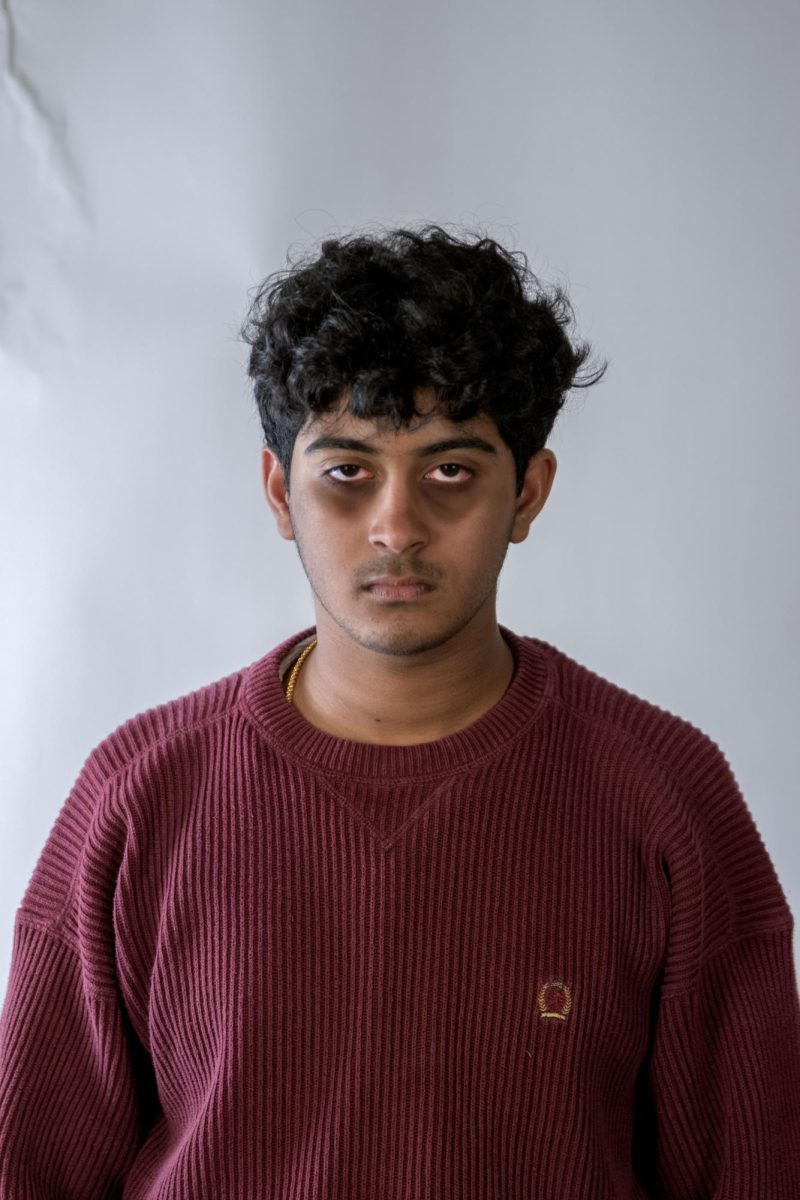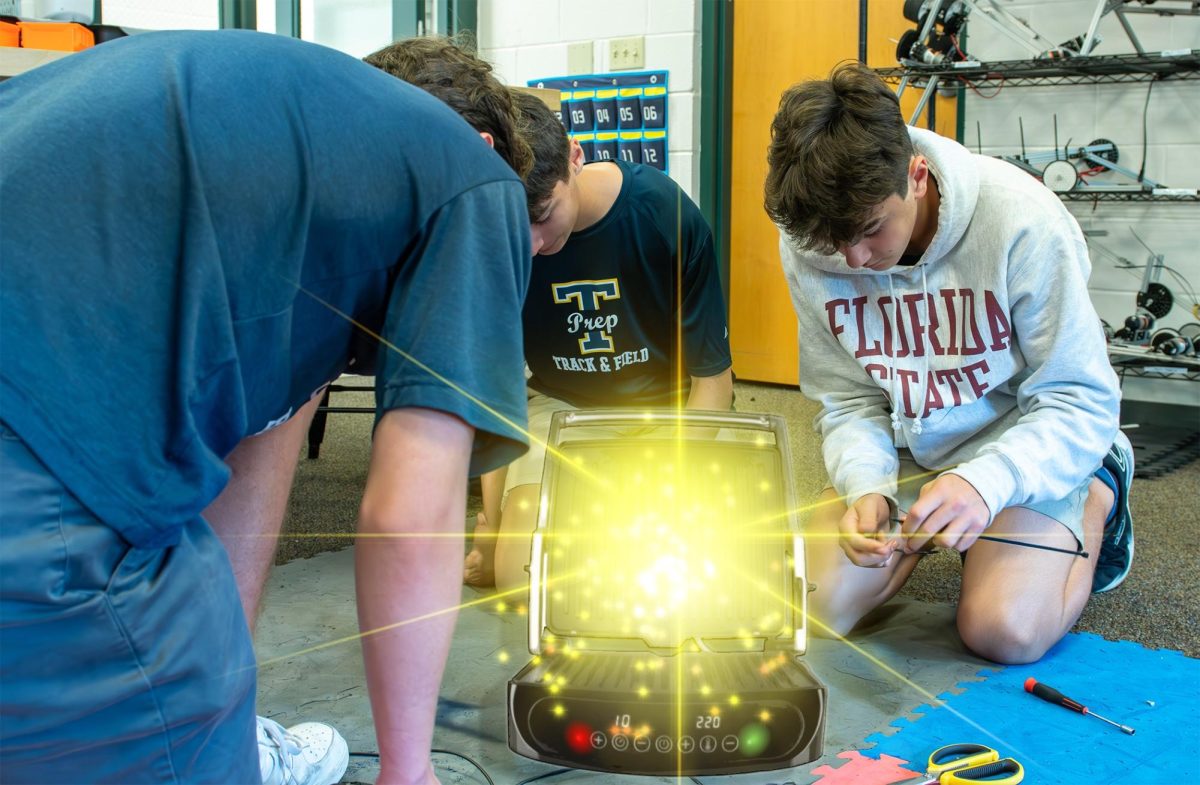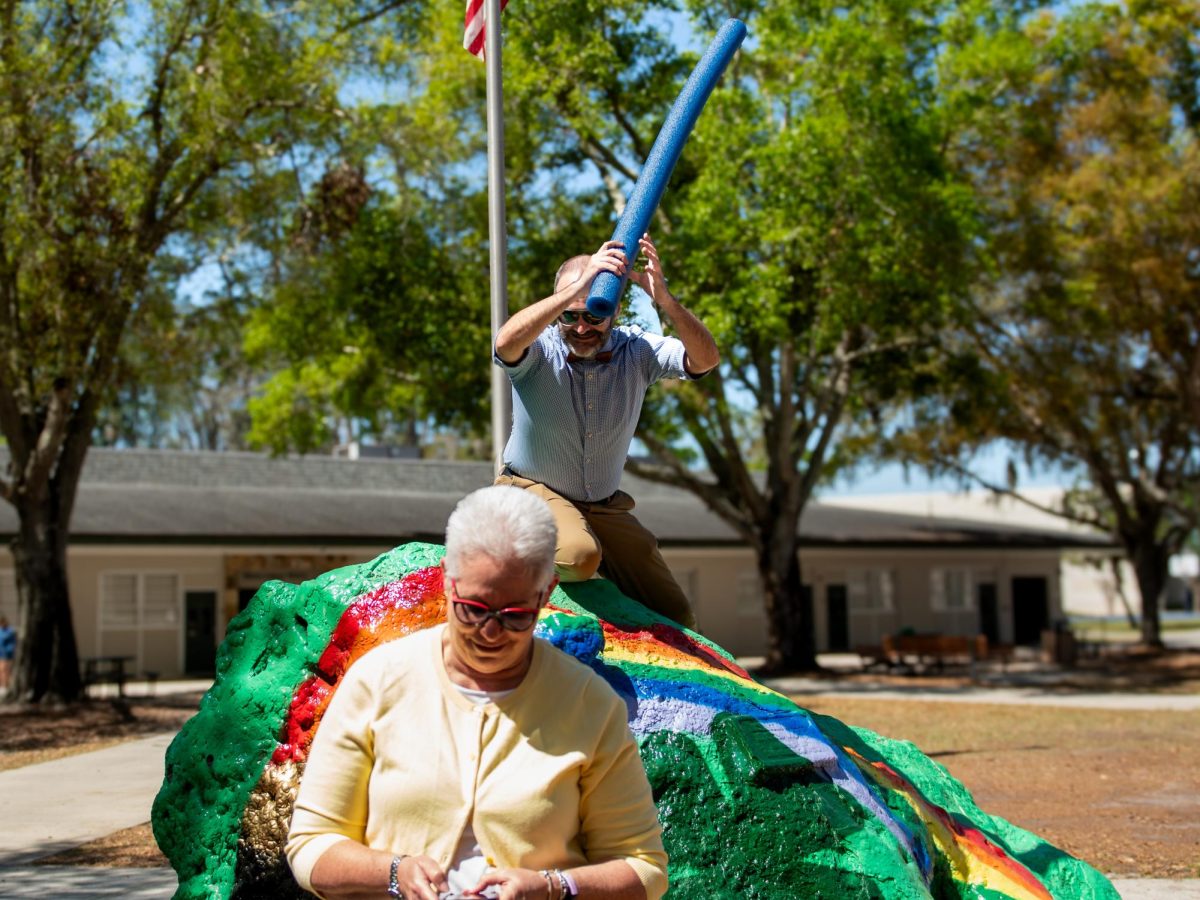In an unprecedented move, Head of School Byron Lawson has declared a crisis, acknowledging the danger facing the Trinity Prep students.
“We can’t keep ignoring this anymore,” Lawson said. “Somehow, even five V8 Energy drinks per student aren’t enough anymore.”
However, according to experts, the root cause of this fatigue is based on two principal factors: staying awake during the night attempting to replicate Chris’s breakfast burrito formula, and completing the hundreds of pounds of homework each night.
Freshman Kaan Hur suffers from Breakfast Burrito Recipe Replication Syndrome (BBRRS), consistently skipping both classes and sleep in order to recreate the seemingly perfect burritos that Chris has to offer.
“This one freshman just keeps trying to steal this recipe from me,” Food Director Chris Behrens said. “I even caught him swimming in my pool to see if the recipe was hidden there.”
In response to the growing crisis, the Centers for Disease Control and Prevention (CDC) has issued a statement urging Trinity students to sleep for their mental sanity.
“We’ve tried everything — we’ve even gotten rid of the V8 Energy drinks at the Grille,” a CDC representative said. “It’s as if these students think that they won’t go to college if they sleep.”
Unfortunately, however, this is the alarming mentality plaguing Trinity students. With the increasing pressure to impress and stand out to college admissions officers, students are pushing themselves to the limits by performing these obscure tasks.
“Sleep is just a distraction at this point,” Hur said. “I haven’t seen a full minute of sleep in over a month, but if I lock in, I can go to Harvard and, with my newfound knowledge, create a burrito empire!”
In addition to this obsession, a relentless homework load coupled with distractions has students working late into the night.
“Yesterday, I did 40 hours of WebAssigns for band class, read ‘Julius Caesar’ three times, and still had to write four essays,” freshman Class President Max Menard said. “Thankfully, I’m good at multitasking and was able to watch Sigma male edits on TikTok for all 40 hours. I also didn’t get any sleep, which increased my no-sleep streak to six weeks!”
However, the teachers aren’t to blame for this excessive amount of homework. Rather, it is forced upon students by the handbook.
“As per the handbook, we’re required to assign at least either 30 pounds or 25 hours of homework each day,” a teacher said. “Even my GRQ’s supplier stopped working with me because my students were finishing two novels every day.”
Students continue to embrace their skewed sleep schedules, declaring their “no-sleep streaks” as badges of honor.
“For 76 hours straight, I’ve been perfecting the eggs-to-tater-tots ratio while simultaneously answering GRQs for ‘Julius Caesar’ and watching Skibidi Toilet,” Hur said. “Sleep isn’t even on the table anymore. Once I crack the formula, I can start a black-market burrito operation and become rich! This will look great on my college applications!”
Shockingly, the effects of the students’ sleepless nights are also partially beneficial. With students absent from school, the drop-off line is shorter than ever, only taking about six days to traverse.
“I can’t believe it!” a parent said. “I only missed a few days of work to drop my kid off to school, and not two weeks! Maybe this sleep deprivation epidemic is a good thing after all.”
Lawson, clearly frustrated with the actions of the students, is afraid of two much more significant issues — the school’s STEM ranking decreasing and the potential loss of its ability to continue raising ethical and resilient leaders.
“We’ve been ranked the #1 school for STEM in Central Florida for years!” Lawson said. “I won’t let that slip away now! Thankfully, our mission of raising ethical and resilient Saints is only getting closer to the truth. After all, sleepless nights demonstrate resilience and restful nights certainly do not. Now, if you’ll excuse me, it’s 8 p.m. I’ve got to get some sleep myself.”
For this reason, Lawson has introduced the “Caffeine-Free Week” initiative, aimed at forcing students to confront their sleep deprivation head-on. This program will introduce mandatory sleep seminars in the place of morning break times.
“Sleep is the new priority,” Lawson said. “This initiative is tackling the root cause of these sleep deprivation issues and is the first step toward breaking the cycle. Even just a few milliseconds of sleep will help students tremendously.”





![[Satire] Six Steps to Sainthood](https://thetrinityvoice.com/wp-content/uploads/2025/04/DSC_4124-2-NR-1200x907.jpg)


